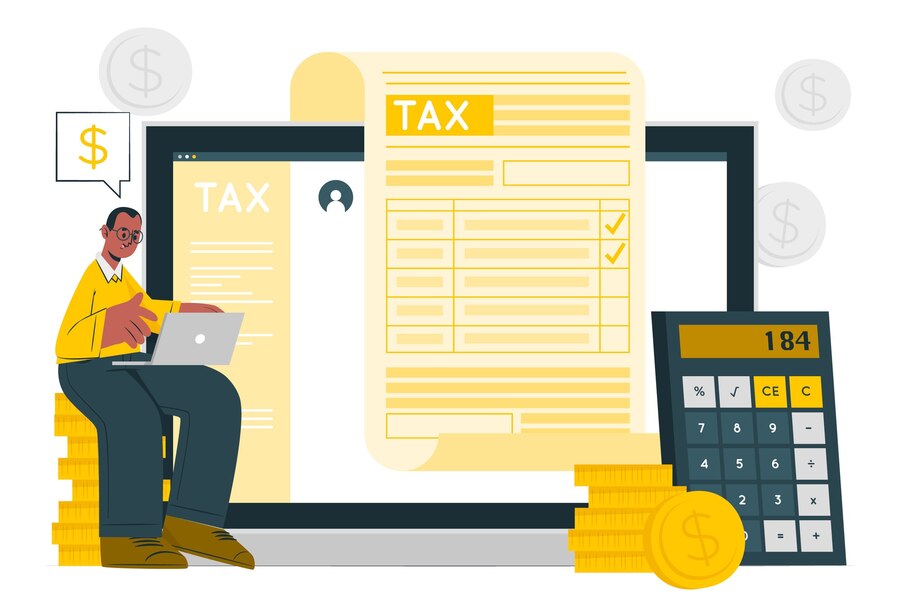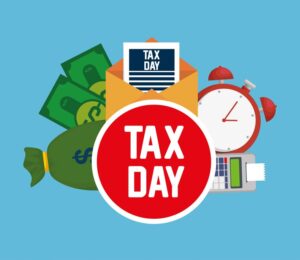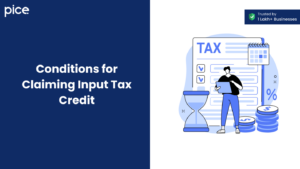The Impact of GST on Rent: An Overview
- 15 Aug 24
- 21 mins

The Impact of GST on Rent: An Overview
Key Takeaways
- GST Applicability Varies by Property Type: Commercial properties generally attract GST, while residential properties are mostly exempt unless used for business.
- Threshold for GST Registration: Landlords must register for GST if their annual turnover exceeds ₹20 lakh (₹10 lakh in special category states).
- Benefits of Input Tax Credit: Landlords can offset GST paid on business-related expenses against GST collected from tenants, reducing overall tax liability.
- Compliance Is Crucial: Accurate invoicing and timely GST filings are essential to avoid penalties and ensure eligibility for ITC.
- Impact on Rental Costs: GST on commercial rents can increase operational costs for tenants, but ITC can mitigate some of these expenses.
In the complex world of taxation, the Goods and Services Tax (GST) has brought about significant reforms, especially in how rental incomes and transactions are handled. This article explains into intricacies of GST on rent, covering its applicability, tax rate, calculation methods, and the specific changes it has brought about compared to the pre-GST era.
The Pre-GST Rule
Before the implementation of the Goods and Services Tax (GST) in India, the taxation of rental income was primarily governed by the Service Tax rules, which were part of the Finance Act, 1994. Under these rules, only commercial properties were liable for service tax if the rent received from them exceeded a certain threshold. Residential properties were generally exempt from service tax, making the tax implications simpler for landlords dealing exclusively in residential rentals.
The threshold for service tax applicability was set at a gross annual revenue of over 10 lakh INR. This meant that small-scale landlords or those owning less commercial property were not burdened with the complexities of tax compliance under the Service Tax regime. Additionally, the service tax rate applicable to rental income from commercial properties was around 15% towards the end of their tenure, prior to the introduction of GST.

Changes Under GST
With the introduction of the Goods and Services Tax (GST) in India, several significant changes were made to the taxation of rental income, aiming to streamline the process and reduce inconsistencies that were prevalent under the previous service tax system. Here are some of the key changes that GST brought to the taxation of rent:
- Unified Tax Rate: GST introduced a standard tax rate for services, including rental income, which replaced multiple rates and exemptions under the Service Tax regime. This helped simplify the tax calculations and compliance processes for landlords.
- Threshold Limit: Under GST, the threshold for mandatory registration and tax collection was set at 20 lakh turnover for most states and 10 lakh turnover for special category states. This threshold is applicable to all types of services, including rental income from both residential and commercial properties.
- Taxation of Residential Properties: Unlike the Service Tax, where residential units were generally exempt unless part of a service (like guesthouses), GST mandates that residential property rentals may be subject to GST if they are part of a business entity that exceeds the threshold.
- Input Tax Credit (ITC): GST allows property owners to claim input tax credit (ITC) for GST paid on services and goods used for renting out the property. This is a significant change as it helps in offsetting the GST liability against the GST paid on expenses related to property maintenance, renovation, or services.
- Reverse Charge Mechanism (RCM): GST introduced the concept of a reverse charge mechanism where, in certain cases, the recipient of the services (the tenant) is liable to pay GST directly to the government instead of the service provider (the landlord) charging it. This applies particularly in cases where the landlord is not registered under GST but the tenant is.
- GST on Rental of Commercial Properties: GST applies to the rental of commercial properties at a standard rate, which is currently at 18%. This is a direct continuation, but with the added benefit of input tax credit, which was not as accessible under the Service Tax rules.
GST Limit for Rental Incomes
- Under the Goods and Services Tax (GST) framework in India, the GST limit for rental incomes sets the threshold at which property owners are required to register for GST and charge it on their rental income. This threshold plays a critical role in determining the tax obligations related to rental transactions.
- Threshold for Registration: The current threshold for GST registration is set at ₹20 lakh in annual turnover for most states in India. For special category states, including North Eastern states and hill states such as Himachal Pradesh and Uttarakhand, the threshold is lower, at ₹10 lakh. This means that if a landlord's annual rental income exceeds these limits, they must register for GST and comply with its filing and payment requirements.
Implications of the Threshold
- For Residential Properties: Generally, renting residential properties for residential use is exempt from GST. However, if a landlord operates a business entity and the total turnover from various sources, including rent income, exceeds the GST registration threshold, they are required to register for GST.
- For Commercial Properties: Rental income from commercial properties is taxable under GST once the threshold is crossed. This includes office spaces, shops, and other commercial premises. The standard actual rate of GST applicable to commercial property rentals is currently 18%.
Exemptions and Special Cases
- Small Landlords: Landlords whose rent income is below the threshold do not need to register for GST. This exemption is particularly beneficial for small-scale landlords and those with limited rental properties.
- Reverse Charge Mechanism (RCM): In certain cases, if the property owner is not required to be registered under GST due to not crossing the threshold but the tenant is a registered GST entity, the GST may still be applicable under the Reverse Charge Mechanism. Here, the tenant is responsible for paying the GST directly to the government.
Impact on Rental Housing
The implementation of the Goods and Services Tax (GST) in India has had a noticeable impact on the rental housing sector. This impact is multifaceted, influencing both landlords and tenants in various ways. Here’s how GST has affected rental housing:
- Increased Costs for Tenants: The application of GST on commercial properties has generally increased the overall cost for tenants. This is because landlords often pass on the tax burden to the tenants, leading to higher rental costs, especially in commercial leases where GST is applicable at 18%. While residential properties are largely exempt from GST when leased for residential purposes, those rented for business purposes do attract GST, impacting costs for businesses opting to rent residential properties.
- Administrative Burden for Landlords: For landlords whose earnings from rental exceed the GST threshold, there is an increased administrative burden. They must comply with GST regulations, which include registering for GST, maintaining detailed financial records, and filing regular returns. This requirement can be particularly challenging for landlords who are not used to dealing with complex tax filings.
- Influence on Rental Decisions: The presence of GST may influence decisions on property investment and leasing. Investors looking to purchase properties for rental purposes must consider the GST implications, which could affect their return on investment calculations. Similarly, businesses might reconsider their space requirements and leasing options to minimize GST costs, potentially opting for smaller or differently categorized properties where tax implications are more favorable.
- Impact on Market Dynamics: The real estate market dynamics might shift as both renters and buyers alter their behaviors based on GST implications. For instance, since commercial properties are subject to GST, there might be a dampening effect on the demand for such properties, especially in segments where cost sensitivity is higher.
- Clarity and Transparency: On the positive side, GST has brought more clarity and transparency into the rental market. With standardized tax rates and clear guidelines, tenants and landlords have a clearer understanding of their tax obligations, reducing disputes and enhancing compliance.
- Potential for Higher Revenues for Government: With GST, the government might see higher revenue from the rental sector, especially from commercial properties. This standardized approach ensures that all eligible rental transactions are taxed appropriately, potentially increasing the overall tax base.
- Encouragement of Formal Economy: GST encourages transactions to be recorded and formalized, which is beneficial for the economy. This formalization helps in better regulation and monitoring of the market, leading to more structured growth.
GST on Rent vs. Rental Income
| Aspect | GST on Rent | GST on Rental Income |
|---|---|---|
| Definition | Refers to the GST applied directly to the amount of rent charged by the landlord. | Refers to the broader implications of GST on the income generated from property rentals. |
| Applicability | Applied to both commercial and residential properties under specific conditions. Commercial properties generally attract GST if above the threshold. Residential properties are exempt unless rented for business purposes. | Concerns how rental income contributes to the total turnover of a landlord, affecting their GST registration requirements and tax liabilities. |
| Tax Rate | Typically 18% for commercial properties. Residential properties are exempt unless used for business purposes. | Not a direct rate; affects overall GST compliance based on the aggregate turnover which includes rental income. |
| Compliance | Landlords must issue GST-compliant invoices to tenants, collect GST, and remit it to the government. | Landlords must include rental income in their total turnover to determine if they meet the GST registration threshold of ₹20 lakh (₹10 lakh for special category states). |
| Input Tax Credit | Landlords can claim Input Tax Credit (ITC) on GST paid on expenses related to the renting of the property (e.g., maintenance, renovation). | The inclusion of rental income in the total turnover can impact the overall ability to claim ITC on other business expenses. |
| Impact on Tenants | Direct financial impact through GST added on rent, increasing monthly rental costs. | Indirect impact; affects landlords' pricing strategies and potentially the overall costs of renting if landlords pass on tax costs to tenants. |
| Exemptions | Residential rentals for personal use are exempt. Specific exemptions also apply based on the nature of the property and the rental agreement. | If the total income, including rental income, is below the threshold, the landlord is exempt from registering and collecting GST. |
Calculating GST on Rent

Calculating GST on rent in India involves a straightforward process, but it requires landlords to understand the GST rate applicable and any possible exemptions. Here’s a step-by-step guide on how to calculate GST on rent:
Step 1: Determine the Applicability of GST
First, determine if GST is applicable to the rental property.
Commercial Properties: GST is typically applicable at 18%. This includes office spaces, shops, warehouses, etc.
Residential Properties: GST is generally not applicable if the property is rented for residential purposes. However, if it is rented for business purposes, GST may apply.
Step 2: Check GST Registration Requirement
If the landlord's annual turnover (from all sources, including rent) exceeds ₹20 lakh (₹10 lakh for special category states), then they must register for GST and charge it on the rent.
If under the threshold, the landlord does not need to charge GST unless covered under the Reverse Charge Mechanism (RCM), where the tenant is a registered GST entity.
Step 3: Calculate the Monthly GST
Once you've determined that GST applies, calculate it based on the monthly rent:
Example Calculation:
- Monthly Rent: ₹50,000
- GST Rate: 18%
- GST on Rent = Monthly Rent × GST Rate
- GST on Rent = ₹50,000 × 0.18 = ₹9,000
Step 4: Issue a GST Invoice
The landlord must issue a GST-compliant invoice to the tenant, detailing the rent and GST separately. This invoice is necessary for both the landlord and the tenant for GST filing purposes.
Step 5: File GST Returns
The landlord needs to file GST returns, usually monthly or quarterly, reporting the GST collected from tenants. This tax is then remitted to the government.
Step 6: Input Tax Credit (ITC)
If the landlord incurs GST on goods and services used to rent out the property (like maintenance services or renovation expenses), they can claim an Input Tax Credit (ITC) to offset the GST payable on the rent. This step requires keeping all invoices related to expenses incurred.
Additional Notes:
- Annual Rental Agreement Review: It’s good practice to review rental agreements annually to adjust for any changes in GST laws or thresholds.
- Reverse Charge Mechanism (RCM): In cases where the landlord is not required to register for GST but the tenant is a registered GST entity, the GST may need to be paid by the tenant directly under the RCM.
Tax Deduction on Income Tax
In India, while the introduction of GST (Goods and Services Tax) has streamlined the tax implications for rental income on the indirect tax front, income tax deductions available to property owners can significantly reduce their direct tax liabilities. These deductions are pertinent for individuals earning rental income from properties, allowing them to offset a portion of the income with certain allowable expenses, thereby lowering their overall taxable income. Here’s an overview of the key tax deductions on income tax for rented-out properties:

- Standard Deduction
Property owners can claim a standard deduction of 30% on the net annual value of the property. This is applicable for residential as well as commercial properties. The net annual value is calculated by subtracting the municipal taxes paid during the year from the gross annual rent received. This standard deduction covers expenses related to repairs, maintenance, and collection of rent, regardless of the actual expenditure incurred.
- Municipal Taxes
Municipal taxes paid during the year, such as property tax, are deductible from the gross rental income if these taxes are borne by the property owner and paid during the year.
- Interest on Borrowed Capital
If the property is purchased with borrowed funds, the interest paid on such loans is eligible for deduction. There is no upper limit for claiming interest on rented properties. This can substantially reduce the taxable income, especially in the initial years of a loan when the interest component of the EMIs (equated monthly installments) is higher.
- Pre-construction Interest
Interest paid on money borrowed for the construction, repair, renewal, or reconstruction of the property can be claimed as a deduction. For properties that are under construction, the interest paid before the completion of construction can be accumulated and claimed in five equal installments starting from the year in which the construction is completed.
- Depreciation
Although depreciation is not directly deductible under the Income Tax Act for individually owned properties, it forms part of the calculaon in reducing the cost of acquisition when the property is sold, thereby affecting capital gains.
- Other Deductible Expenses
Other direct expenses related to the renting of the property, such as advertising for tenants, legal fees for rental agreements, and property management fees, are also deductible when calculating the income from house property.
Exemptions from GST on Rent
Under the Goods and Services Tax (GST) framework in India, there are specific exemptions provided for rental income that can significantly impact landlords and tenants alike. Understanding these exemptions is crucial for effective financial planning and compliance. Here's a detailed look at the exemptions from GST on rent:
- Residential Properties
Renting of residential properties for use as a residence is exempt from GST. This exemption is crucial for individual tenants and landlords, as it keeps residential rents more affordable and simplifies compliance requirements for landlords who might not be equipped to handle GST procedures.
- Threshold Limit
Landlords who earn rental income below a certain threshold are exempt from registering for GST. The current threshold is ₹20 lakh in aggregate turnover annually for most states and ₹10 lakh for special category states (North-Eastern states and hill states). This means that if a landlord's total income from all sources, including rental income, does not exceed this limit, they do not have to charge GST on the rent.
- Renting to Charitable Organizations
Rental services provided to a registered charitable trust or institution can be exempt from GST, provided these services are used for furtherance of their charitable activities. This exemption is aligned with the government’s policy to support charitable and non-profit activities.
- Educational Institutions
Services by way of renting of immovable property to an educational institution (defined under the GST law) for education purposes are exempt. This includes rentals for schools, colleges, and other educational training centers, which helps in reducing the cost of education.
- Exempt Businesses
Businesses operating in sectors that are exempt from GST will also benefit from exemptions in rental charges. For instance, renting of premises by and to businesses dealing in goods and services that are themselves exempt from GST may not attract the tax on rent.
- Reverse Charge Mechanism (RCM)
While not an exemption per se, under the Reverse Charge Mechanism, the responsibility to pay GST shifts from the landlord to the tenant if the tenant is registered under GST and the landlord is not. This can effectively exempt small landlords from the need to deal with GST filing and compliance.
- Long-term Leases
Long-term leases (30 years or more) of industrial plots or plots for development of infrastructure for financial business, provided by state government industrial development corporations or undertakings to industrial units, are also exempt from GST. This is designed to encourage industrial and infrastructural development.
- Special Cases and Exemptions:
Agricultural Land: Leasing or renting of agricultural land is exempt from GST. This includes land used for agriculture, aquaculture, horticulture, forestry, dairy farming, poultry farming, and cultivation of vegetables and mushrooms.
Guest Houses: Providing rooms in a guest house, dharamshala, or similar facilities meant for residential or lodging purposes, other than as a hotel, inn, or campsite, are exempt from GST.
GST on Commercial Rentals
Renting of commercial properties in India falls under the purview of the Goods and Services Tax (GST), which has specific implications for both landlords and tenants. Understanding the conditions, rates, and broader impacts of GST on commercial rentals is crucial for businesses as they navigate the complexities of leasing commercial spaces. Here’s an overview:
GST Applicability on Commercial Rentals
1. GST Rates
The standard GST rate applied to commercial property rentals, including office spaces, retail spaces, warehouses, and other types of commercial premises, is generally 18%. This rate is applicable on the rent charged by the landlord.
2. Mandatory GST Registration
Landlords who have a turnover exceeding ₹20 lakh annually (₹10 lakh for special category states) from all sources, not just rental income, are required to register for GST. Once registered, they must charge GST on the rental invoices issued to their tenants.
3. Input Tax Credit (ITC)
One of the significant advantages for tenants of commercial properties under GST is the ability to claim Input Tax Credit (ITC). Tenants can deduct the GST paid on their commercial rent from the GST they owe on their sales, effectively reducing their overall tax burden. This is contingent upon the tenant using the rented property for business purposes that allow them to charge GST.
4. Tax Invoices
Landlords are required to issue detailed GST-compliant tax invoices to their tenants. These invoices must clearly break down the rent and the GST charged, facilitating transparency and enabling tenants to claim ITC.
Implications for Businesses
1. Increased Cost of Leasing
For businesses, the application of GST on commercial rentals often means an increase in the cost of leasing properties due to the added tax. However, the ability to claim ITC can mitigate this impact to a considerable extent.
2. Compliance Requirements
Both landlords and tenants must adhere to stringent GST compliance. This includes regular GST filings and accurate bookkeeping to ensure all claims are justified and transparent.
3. Lease Structuring and Negotiations
The presence of GST influences lease agreement structuring. Parties may negotiate terms that consider the tax implications, such as who bears the incidence of GST and how it is factored into the lease payments.
4. Budgeting and Financial Planning
Businesses need to account for GST as part of their budgeting for rental costs. Effective financial planning must include GST considerations to maintain cash flow and ensure that tax credits are utilized optimally.
5. Impact on Lease Terms
The additional cost due to GST may lead businesses to reconsider the length of their lease terms or opt for properties with different pricing strategies that may be more tax-efficient.
ITC Provisions

In the context of the Goods and Services Tax (GST) in India, Input Tax Credit (ITC) is a mechanism that plays a pivotal role for landlords in managing the financial burden of taxes applied to the rental of commercial properties. ITC allows landlords to reclaim the GST paid on purchases or services used in the course of renting out property, effectively reducing the net cost of these taxes.
Here’s a detailed look at how the ITC provisions work when GST is charged on rent.
Eligibility for ITC
To be eligible for claiming ITC, landlords must meet specific criteria
- GST Registration: Landlords must be registered under GST to claim ITC.
- Taxable Supplies: The property must be rented out for purposes that are taxable under GST. For instance, commercial properties rented out to businesses that use the space for taxable activities.
- Compliance with GST Invoicing: Proper GST-compliant invoices must be issued for the rent and for any purchases related to the renting activity. These invoices serve as the basis for claiming ITC.
Expenses Eligible for ITC
Landlords can claim ITC on a variety of expenses directly related to the leasing of the property. These include:
- Maintenance Services: GST paid on services such as cleaning, repairs, or maintenance of the property can be claimed as ITC.
- Renovation and Improvements: If a landlord undertakes renovation or improvement works on the property, the GST paid on these services and the materials purchased can be claimed.
- Professional Fees: GST paid on professional services such as legal fees, accounting services, and property management services that are directly attributable to the rental activity.
Conditions for Claiming ITC
Several conditions must be satisfied to effectively claim ITC:
- Documentary Evidence: Landlords must maintain all invoices and receipts which detail the GST paid. These documents are necessary for supporting the claim during GST filings.
- Timely Claiming: ITC must be claimed within the stipulated time frames as set out by the GST regulations. Typically, this is by the end of the financial year following the year in which the invoice was issued, or before the due date for filing the annual return, whichever is earlier.
- Exclusive Use for Business: The goods or services on which GST has been paid and for which ITC is being claimed must be used exclusively for the purpose of business (renting in this case). If there is mixed use, only the portion attributable to the business use can be claimed.
Impact of ITC on Landlords
The ability to claim ITC offers several benefits for landlords:
- Reduced Cost Burden: By offsetting the GST paid on expenses against the GST collected on rent, landlords can significantly reduce their overall tax liability.
- Cash Flow Improvement: Effective utilization of ITC can improve cash flows by reducing out-of-pocket GST payments.
- Enhanced Competitiveness: With reduced operational costs, landlords may offer more competitive rental rates, enhancing the attractiveness of their properties.
Conclusion
Knowing GST on rent is crucial for both landlords and tenants to navigate their financial and tax responsibilities effectively. This comprehensive guide aims to clarify the main points and assist stakeholders in making informed decisions.
💡Take the first step towards making all your business payments efficiently with a credit card. Request a demo and discover how PICE can manage all your business payments, rent, vendors, and GST from a single dashboard.



















